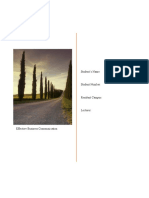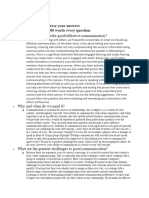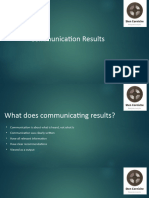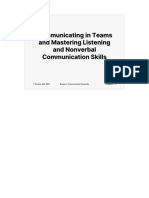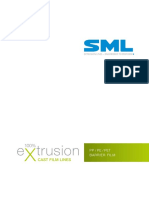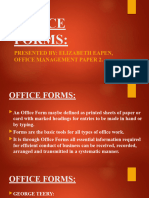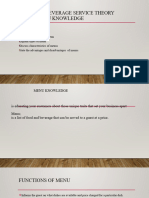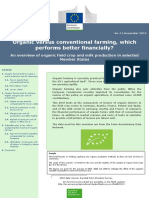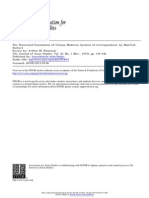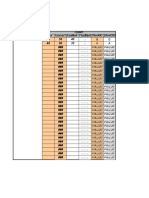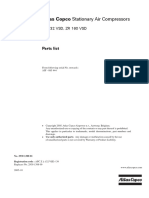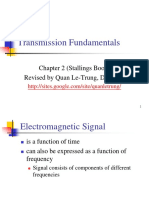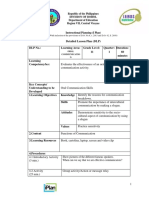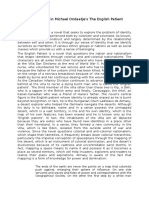0% found this document useful (0 votes)
32 views14 pagesEffective Communication Gervase
The document discusses effective communication for internal auditors, focusing on listening skills, barriers to effective listening, imperatives for effective communication, non-verbal communication, audit reports, the purpose of audit reports, report writing tips, and conclusions. Some key points are that communication is important for every job, good listening skills are important for internal auditors, audit reports are an opportunity to get management's attention, and effective leaders provide timely and concise communications with impact.
Uploaded by
normanCopyright
© © All Rights Reserved
We take content rights seriously. If you suspect this is your content, claim it here.
Available Formats
Download as PPTX, PDF, TXT or read online on Scribd
0% found this document useful (0 votes)
32 views14 pagesEffective Communication Gervase
The document discusses effective communication for internal auditors, focusing on listening skills, barriers to effective listening, imperatives for effective communication, non-verbal communication, audit reports, the purpose of audit reports, report writing tips, and conclusions. Some key points are that communication is important for every job, good listening skills are important for internal auditors, audit reports are an opportunity to get management's attention, and effective leaders provide timely and concise communications with impact.
Uploaded by
normanCopyright
© © All Rights Reserved
We take content rights seriously. If you suspect this is your content, claim it here.
Available Formats
Download as PPTX, PDF, TXT or read online on Scribd
/ 14










